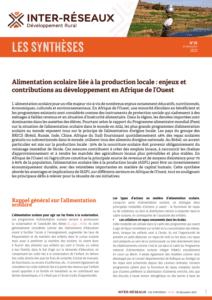By its size and population Nigeria is almost a subcontinent in and of itself. The country continues to have one of the most dynamic economies in Africa, with GDP growth of around 6% in 2009. The effects of the international crisis have been felt, however, with a significant drop in oil prices, scarcer credit and a financial sector made fragile by toxic assets. These factors threaten the precarious macroeconomic equilibrium that had been attained between 2003 and 2007, and it is increasingly difficult to believe in the ambitious “2020 Vision” that aims to make Nigeria the world’s twentieth-largest economy by 2020. Although Nigeria is the secondranking economic power in sub-Saharan Africa, its economy is lacking in competitiveness, ranked ninety-third out of 134 countries. The country’s economic performance is above average for sub-Saharan Africa, but well below that of other regions in the world. The economy is not diversified and remains largely dependent on the petroleum sector, with the consequence that the country’s budgetary circumstances are highly correlated to fluctuations in the price of oil.
Inversely, Nigeria has been able to hold its food dependence at a relatively low level compared to other West African countries. Regarding rice, a staple that is central in the food policy debate in West Africa, comparison of degrees of rice dependency across the sub-region show an ongoing deterioration of the rice balance, except in Nigeria. Rice growing in Nigeria has in part met rising demand, thanks to substantial support policies. However, while local rice production reaches the cities in the centre of the country, the large coastal cities continue to be supplied heavily with imported rice. Nigeria is thus simultaneously the most powerful agricultural economy in the region, and the country that imports the most food (via both regulated and controlled channels and informal and illegal pathways).
The development of trade between Nigeria and neighbouring countries reflects a trend that is seen well beyond Nigeria. The shift of trade to bordering areas and regional markets is happening in two apparently contradictory directions. First, the regional integration dynamics supported by ECOWAS are increasingly successful in erasing national borders. Second, some bordering countries are increasingly pushing for wider use of cross-border differentiation. Intra-regional trade with Nigeria is set in a framework of multiple realities: food security issues in Niger with informal trade flowing from Nigeria, competition issues with Cameroon, re-export trade issues with Benin. The markets that prosper on both sides of the Nigerian border make these regions remarkably dynamic in terms of trade. The intensity of trade and its ambiguous effects in the different countries raise many questions about trade policy, in particular with respect to grain products.
Nigeria’s trade policy contrasts sharply with that of its neighbours, by its instability as much as by its protectionist tendencies. Although Nigeria has subscribed to the ECOWAS stipulations (and is the seat of the organization’s headquarters), the Nigerian government continues to apply high tariffs to certain products, and issues import bans every year. These disparities between countries are a boon to trade networks that are well integrated across the regional area. It is likely that implementation of a free-trade scheme within ECOWAS will strengthen trade with Nigeria, but in this case the future of re-export trade will be jeopardised. This poses a challenge for the different value chains and their actors, namely reconversion and developing the capacity to meet consumer demand, in particular in cities. This also implies, assuming that government authorities agree, that Nigeria revise its tariff policy across the board (a maximum customs tariff of 35% and an end to import bans).
These issues raise questions about Nigeria’s role in meeting the challenges of regional integration, and in particular the country’s agricultural sector’s position in today’s regional dynamics. We hope that this issue of Grain de sel will provide readers with keys to understanding the situation and some solutions to the problems.







